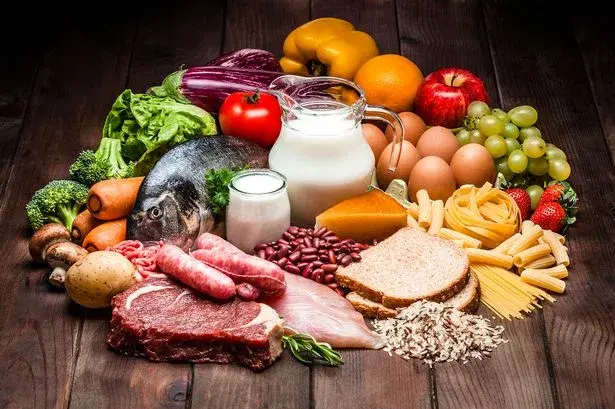Flavorful and Fresh: The Benefits of Dehydrated Herbs and Spices
- Sep 26, 2024
- 4 min read
Imagine a world where flavor isn’t just a fleeting experience but a constant companion in your culinary adventures. Enter dehydrated herbs and spices—nature’s little flavor bombs that pack a punch long after their fresh counterparts have withered away. If you’re a food enthusiast or just someone who enjoys cooking, understanding the benefits of these dehydrated wonders can elevate your meals and simplify your cooking process. So, let’s dive into why dehydrated herbs and spices should have a permanent place in your kitchen!
Dehydrated Herbs and Spices Guideline:
What Are Dehydrated Herbs and Spices?

The Process of Dehydration
Dehydrated herbs and spices are simply the dried versions of fresh herbs and spices. The process involves removing moisture from these plants, which concentrates their flavors and extends their shelf life. Various methods exist for dehydration, including air drying, oven drying, and using specialized dehydrators. Each method can affect the flavor and aroma, but all aim to preserve the essence of the herb or spice.
Common Herbs and Spices That Are Dehydrated
You’ll find a plethora of dehydrated options in your local grocery store or at our online store. Some popular choices include:
Each of these brings its unique flavor profile to your dishes, making them versatile for various cuisines.
Why Choose Dehydrated Herbs and Spices?

Enhanced Flavor Profiles
One of the standout benefits of dehydrated herbs and spices is their concentrated flavor. When you dehydrate these plants, the moisture that often dilutes taste is removed, allowing for a robust and intense flavor. Think of it as a flavor shot in your culinary arsenal!
Long Shelf Life
Unlike fresh herbs that wilt and spoil quickly, dehydrated herbs and spices can last for months or even years when stored properly. This longevity makes them a practical choice for anyone looking to minimize food waste and maximize their pantry's potential.
Nutritional Benefits
While the dehydration process may lead to some loss of nutrients, many essential vitamins and minerals remain intact. Dehydrated herbs and spices can still contribute to your daily nutritional intake. They are often rich in antioxidants and can provide anti-inflammatory benefits, making them not just tasty but also a health-conscious choice.
Culinary Uses of Dehydrated Herbs and Spices
Seasoning and Flavoring Dishes
The most common use for dehydrated herbs and spices is, of course, seasoning your dishes. Sprinkle them into soups, stews, marinades, or salads to elevate the flavor. For instance, a pinch of dehydrated oregano can transport your pasta dish to an Italian restaurant level!
Infusing Oils and Vinegars
Dehydrated herbs and spices can also be used to infuse oils and vinegars. Simply combine your choice of dehydrated herb with oil or vinegar in a jar, let it sit for a week, and voila! You have a deliciously flavored oil or vinegar that can take your salads and dishes to a whole new level.
Creating Custom Spice Blends
Why settle for store-bought spice blends that may contain preservatives or additives? With dehydrated herbs and spices, you can create your unique blends tailored to your taste. Mix dehydrated garlic, onion, and chili powder for a versatile seasoning that works wonders on meats, veggies, or popcorn!
Storage and Preservation of Dehydrated Herbs and Spices

Best Practices for Storage
To ensure your dehydrated herbs and spices stay fresh, store them in an airtight container, preferably in a cool, dark place. Avoid exposing them to light and heat, which can degrade their flavor over time. Glass jars or vacuum-sealed bags work well for storage.
How to Rehydrate and Use
Using dehydrated herbs and spices is simple! For most applications, you can sprinkle them directly into your dish without rehydrating. However, if you want to restore their original texture, soak them in warm water for a few minutes. This is especially useful for dishes where texture matters, like salads or toppings.
The Environmental Impact of Dehydrated Herbs and Spices

Reduced Waste
By opting for dehydrated herbs and spices, you contribute to reducing food waste. Fresh herbs often go unused and end up in the trash, while dehydrated options remain viable for extended periods. This not only helps your wallet but also lessens your environmental footprint.
Sustainable Sourcing
Many brands prioritize sustainability when sourcing herbs and spices. By choosing organic or sustainably harvested options, you can support environmentally friendly practices and enjoy high-quality ingredients in your cooking.
Conclusion
Incorporating dehydrated herbs and spices into your cooking is a flavorful, practical, and environmentally friendly choice. With their intense flavors, long shelf life, and nutritional benefits, they can transform your culinary creations and make cooking easier. So next time you’re in the kitchen, reach for those little flavor bombs and let your taste buds rejoice!
FAQs
How do dehydrated herbs differ from dried herbs?
Dehydrated herbs are often processed more carefully to retain flavor and nutrients, while dried herbs may lose some potency due to prolonged exposure to heat and air.
Can I dehydrate herbs and spices at home?
Absolutely! You can use an oven, dehydrator, or even air-dry herbs in a cool, dry place to create your dehydrated pantry staples.
What is the best way to use dehydrated herbs?
You can use them in cooking without rehydrating them or soak them in warm water for a few minutes for recipes that require fresh textures.
Do dehydrated herbs lose their nutritional value?
While some nutrients may be lost during the dehydration process, many essential vitamins and minerals remain, making them a healthy addition to your diet.
How can I tell if my dehydrated herbs are still good?
Check for aroma and color. If they lack scent or appear dull, it may be time to replace them for the best flavor experience.





Comments